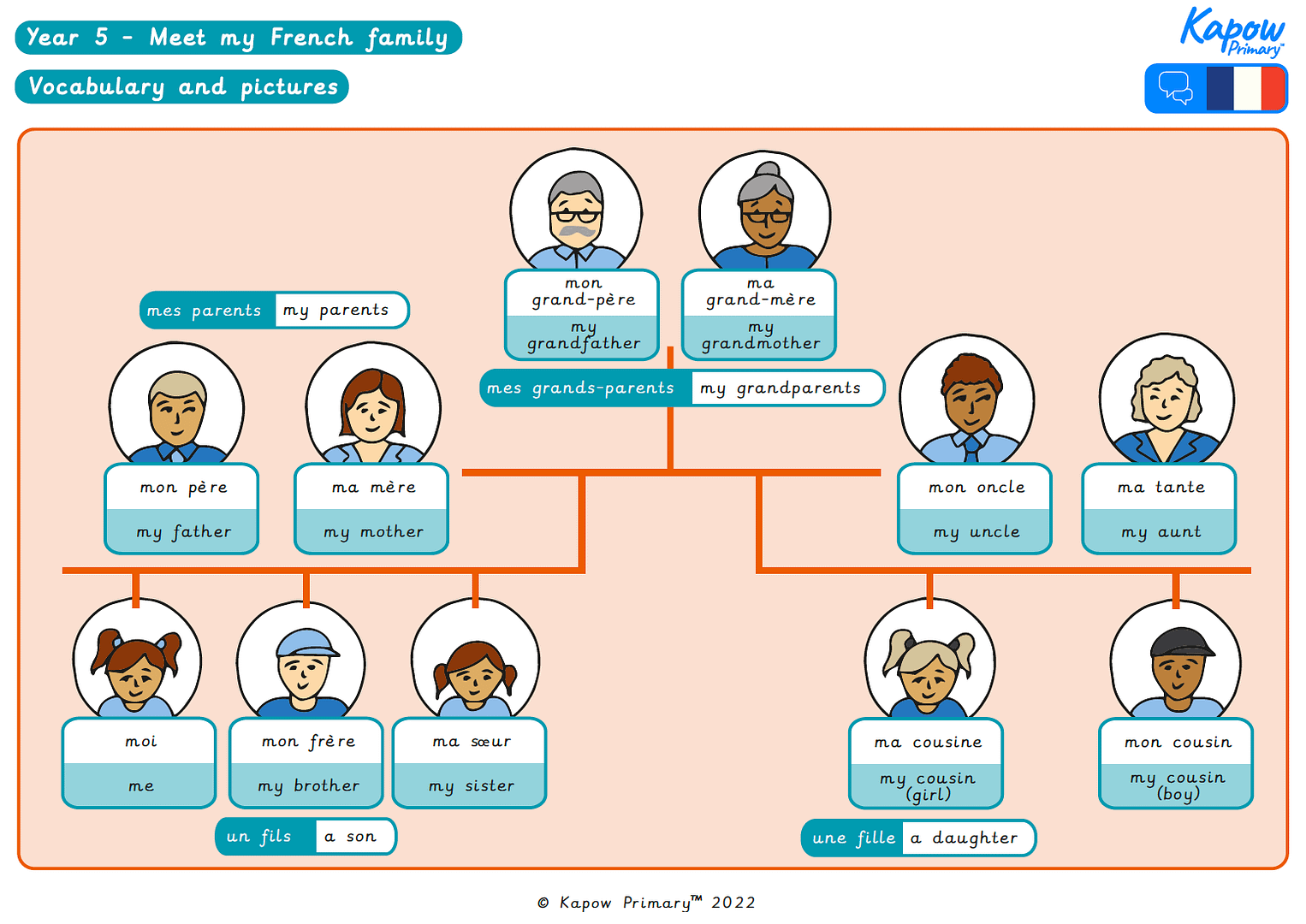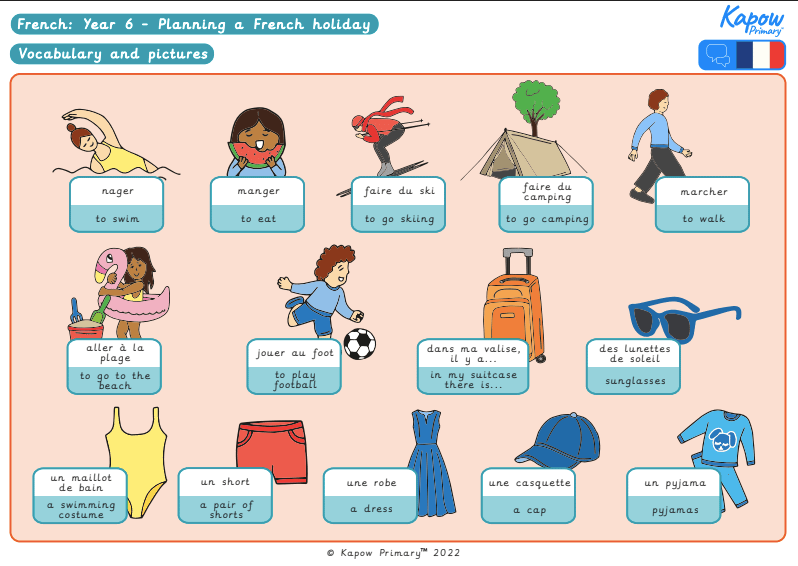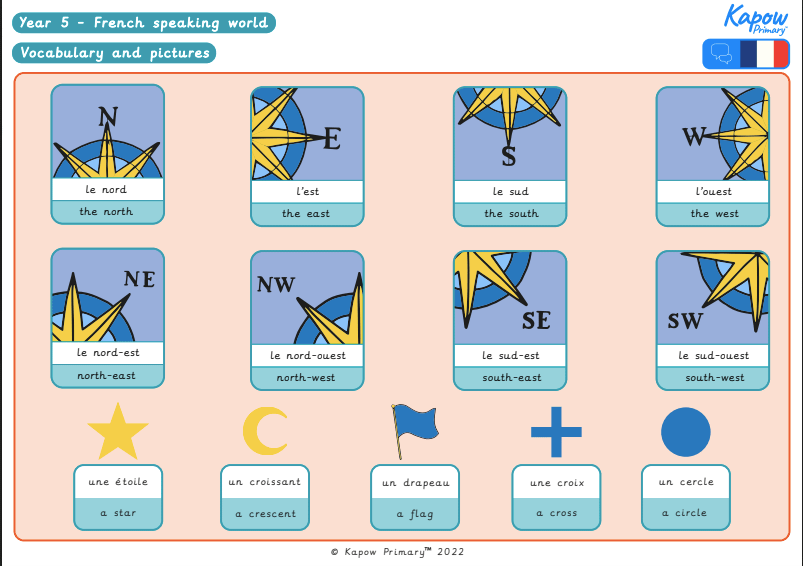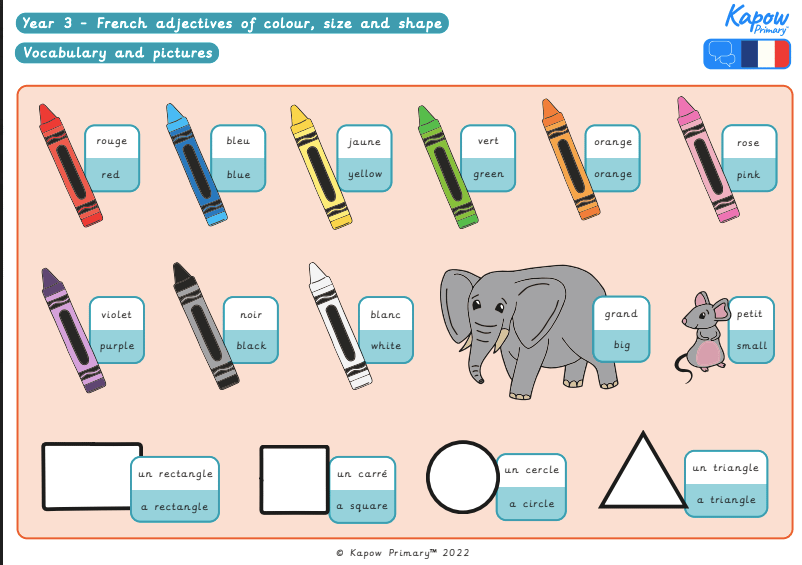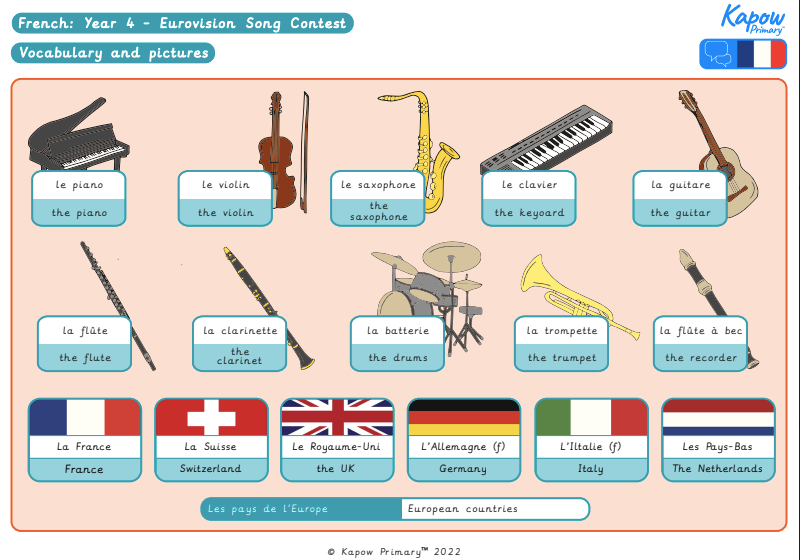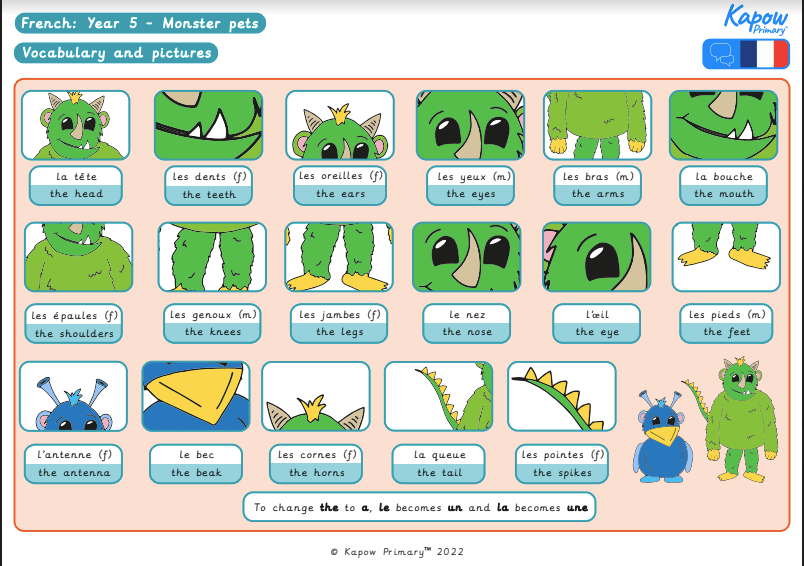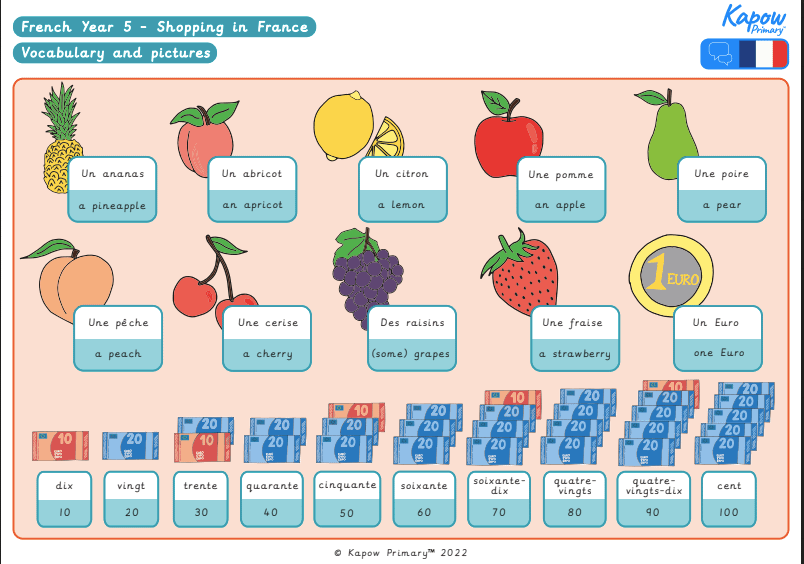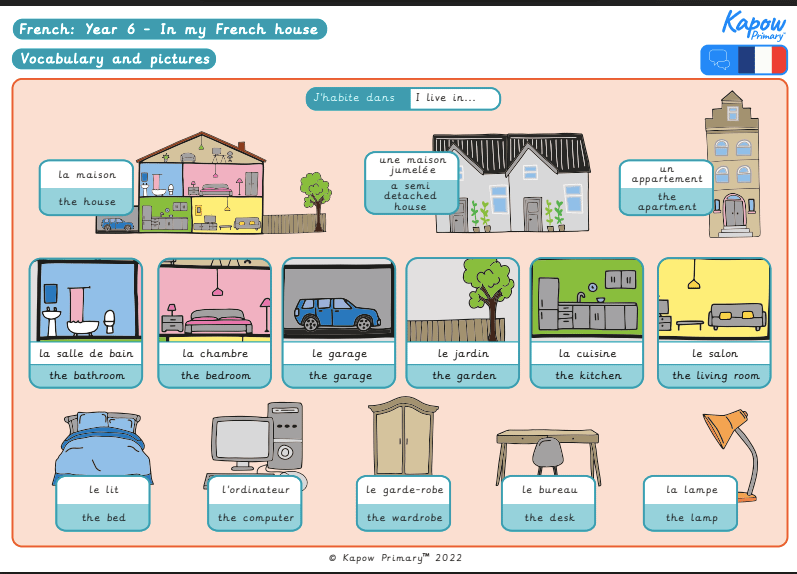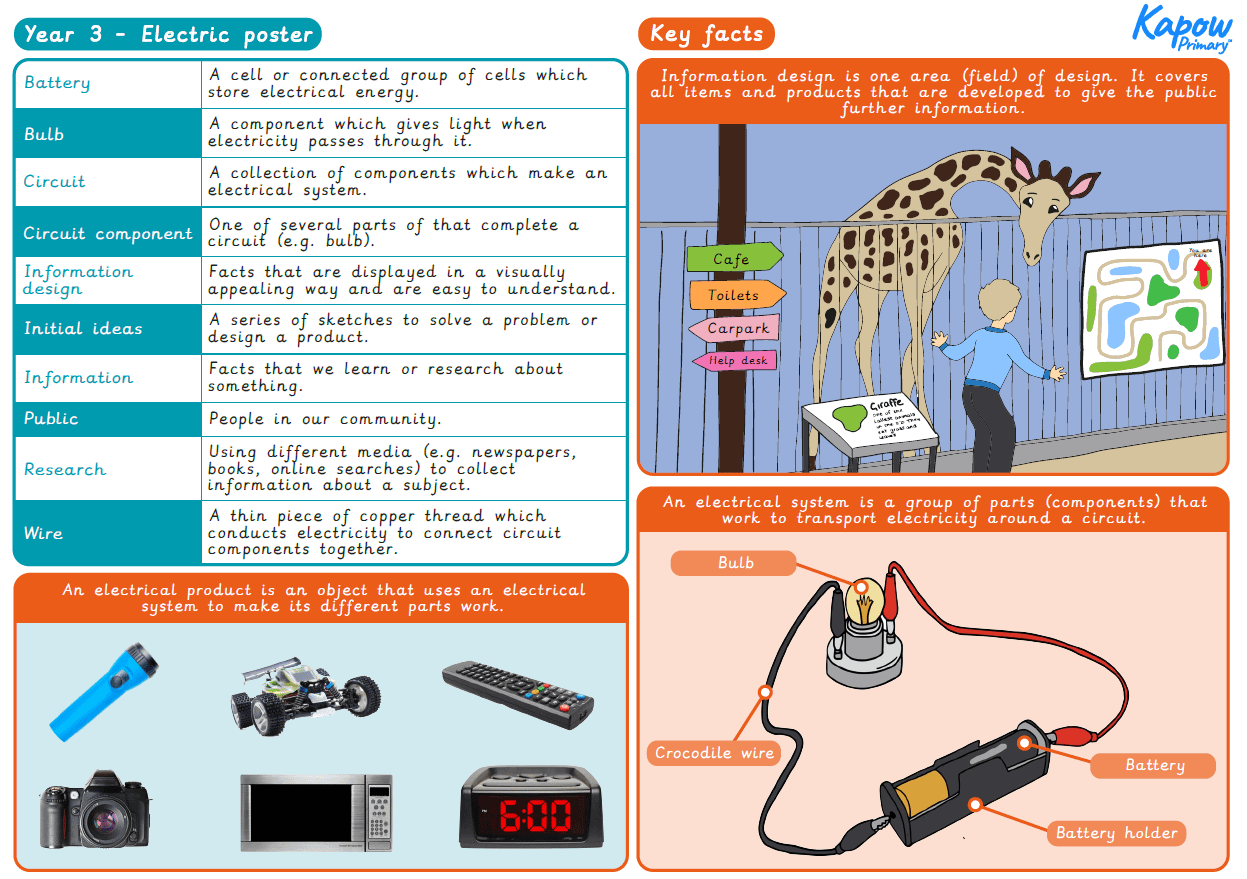Featured Document Type: Knowledge organiser
Knowledge organiser: French – Y6 Planning a French Holiday
Knowledge organiser: French Y5 – French-speaking world
Knowledge organiser: French Y3 – Adjectives of colour, size and shape
Knowledge organiser – French Y4: The Eurovision Song Contest
A Knowledge organiser that captures the essential knowledge and skills learnt throughout the unit French, Year 4, The Eurovision Song Contest.
This French resource is designed to support the pupils as they explore European countries and their languages through the context of the Eurovision Song Contest. It introduces key vocabulary such as country names, nationalities, musical instruments, and performance-related terms, helping the pupils develop their French-speaking, listening, and reading skills. The pupils will also learn how to describe countries and cultures in French, expanding their understanding of linguistic diversity.
Knowledge organiser: French – Y5 French monster pets
Knowledge organiser: French – Y5 Shopping in France
Knowledge organiser: French – Y6 In my French house
Knowledge organiser – DT: Y3 Electrical systems: Electric poster

